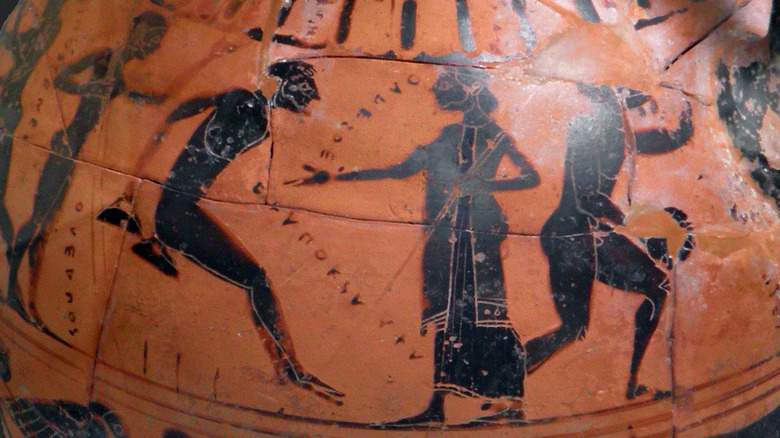Are Sports And Games Mentioned In The Bible?
The Bible is a dense and thick book (actually a collection of books) that covers centuries of history around a large geographical area. Within its pages of poetry, prophecy, law, historical narrative, and other literary genres, the text frequently touches upon mundane realities of everyday life. For example, the book mentions recipes (1 Kings 17), burn treatments (Leviticus 13), marriage advice (Hebrews 13), and childrearing (Proverbs 13).
Another mundane reality of everyday life that comes up in the Bible, however obliquely, is leisure activities, such as sports and games. Ancient Babylonian and Egyptian board games certainly existed in Old Testament times, according to The British Museum, and it's quite possible that people in the narrative could have been exposed to them. Similarly, in New Testament times organized sports were big, according to True Discipleship, and it's almost a certainty that the early readers of those books were familiar with the athletic contests of the day, and may have even participated themselves.
The Bible is thin on references to games
The Bible does not mention any specific games at all, with one possible exception. And here we're defining "games" not just as board games, but also leisure activities such as hide-and-seek or other children's games.
According to Old Testament history professor Dr. Claude Mariottini of Northern Baptist Seminary, the only references to games in that section of the Bible are vague allusions to children's activities, such as when Zechariah writes that "The streets [of Jerusalem] will be filled with boys and girls playing there."
Another game, of a sort, mentioned in both Testaments is casting lots. According to Early Church History, the activity, not unlike throwing dice or drawing straws, was sometimes used as a form of divination, such as when the sailors on Jonah's ship cast lots to determine that he was the cause of the storm that was threatening to sink the vessel (Jonah 1:7). Similarly, in the New Testament, the soldiers who crucified Jesus cast lots as a form of gambling, with Jesus' clothes as the prize (John 19).
The New Testament is big on sports
The New Testament was written in Greek, and for a good reason: by Jesus' time, the area round the Eastern Mediterranean Sea, the Middle East, and Far West Asia were dominated by Greek culture, according to Biblical Studies. Organized sports were significant in ancient Greek culture: the Olympic Games were a thing at the time, as was their smaller cousin, the Isthmian Games, according to True Discipleship. It's not out of the question that some of the readers and/or writers of the New Testament may have even been in attendance.
References to sports, athleticism, and physical fitness abound in the New Testament, where in some cases they're imbued with spiritual meaning. For example, in 1 Corinthians 9, in teaching his readers about self-discipline, the Apostle Paul references racing: "Do you not know that in a race all the runners run, but only one gets the prize? Run in such a way as to get the prize." Similarly, in Hebrews 12, the writer instructs the readers to "run with perseverance the race marked out for us." And in 2 Timothy 4, the Apostle Paul likens the end of his life to the completion of a race, writing, "I have fought the good fight, I have finished the race, I have kept the faith."


